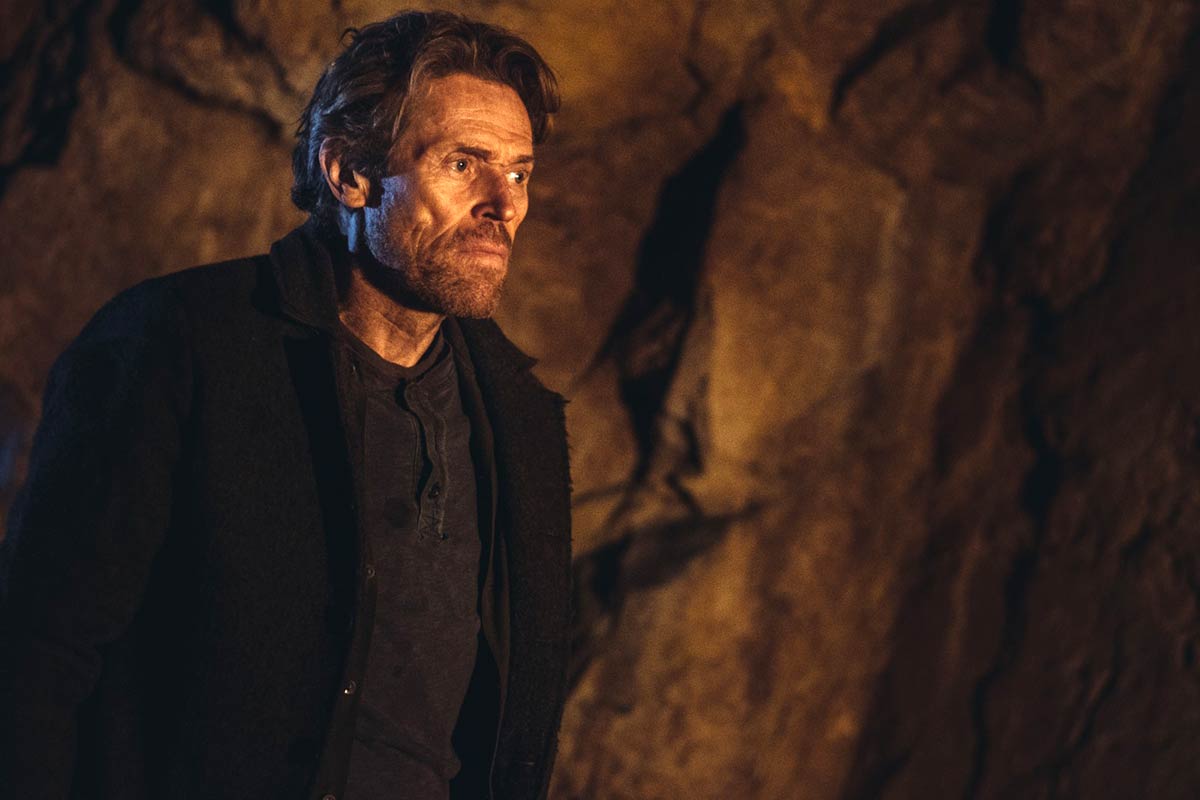In Abel Ferrara’s films over the last 10 years, the apocalypse has been looming, waiting to infect everyone in its vicinity with darkness, death, and devastation. In Tommaso, there is doom impending even in an otherwise stable family unit, paralyzing its protagonist with anxieties and sufferings so intense that there’s no chance of a happy ending. In Pasolini, the apocalypse is made further personal. The inevitable death of the Italian filmmaker is built towards with cosmic sadness, the unfinished work of his being brought to life by Ferrara like half-remembered dreams before his violent murder. Within his masterpiece 4:44 Last Day on Earth, the apocalypse is literal, two people desperately trying to cling onto each other before time itself runs out in front of their eyes. All of Ferrara’s pursuits of understanding death and the horrors of it are present in his latest feature film Siberia, one that takes the dreamlike moments of Pasolini and expands them into a fragmented, labyrinthic nightmare.
Clint (Willem Dafoe) is a bartender in a desolate bar in the middle of Siberia. Trapped in a freezing wilderness, he oscillates between keeping the bar intact, going on supply runs with his pack of wolves, and trying to keep himself alive for another day. Over the course of his isolation, he reflects on the nature of his existence, hallucinating memories, dreams, and imagined realities as he confronts why he’s shut himself off in this frozen corner of the world. Unlike in Ferrara’s other films of late, Clint has no one to suffer alongside––no one that will mourn him or clamor for his safe return. There are no love interests to bounce off of, no creative associates or loving family members––just a pack of wolves and grunting drunkards.
For the fourth time since 2011 and the sixth time overall, Ferrara reunites with Dafoe and once again directs a magnificent performance out of the seasoned actor. Dafoe looks broken from the first seconds we see him on screen. His eyes are tired, his posture is uncertain and tense. He is bewildered and haunted by his demons constantly and he sells that fear perfectly. Dafoe is a naturally charismatic actor but doesn’t play into his charm at all here, crafting a portrait of a man who can’t face any of the transgressions or mistakes he’s been a part of. There are no inherently sympathetic qualities to Clint. He is distanced because of his own regrets and choices. He refuses to connect or live up to anything he’s failed at even in dreams, and all he does to live with himself in this physical rendering of his own shame is abuse alcohol and blast death metal. Dafoe leans into every pathetic aspect of his character perfectly but does such expressive work with his eyes that it’s impossible to not feel the melancholy anyway, the audience practically stares into his soul every time his sadness radiates on camera.
On the surface, it seems similar to the third act of a previous collaboration between Dafoe and Ferrara, New Rose Hotel. The final sequences of that 1998 film show Dafoe in utter isolation in an abandoned building, reflecting on a love interest he knows he’s never going to see again in this reality. However in New Rose, alternate takes are used of scenes the audience has already seen, creating a dissonant yet intimate feeling of reflecting back upon memories, with the words not being exactly the same as they used to be. It conveys the sense of heartbreak from something being gone. Siberia is about the horror of nothing being there, nothing concrete in the past, present, or future––just darkness, suffering and the desperation for something else. Nothing we see in the unnerving middle act where dreams and memories blend together with frightening unease comes across as real. This is not the retelling of a once lived life; this is a broken dreamscape filled with all the images and characters that he ran away from, with the surrealism getting darker and stranger as the film’s terror progresses. Eventually, he has to face the images of the people he’s let down, whether they’re real or just illusions of a broken mind. The editing and cinematography throughout is remarkable. The montage whenever disconnected sequences blend together is genuinely breathtaking, occasionally providing indescribable chills with moments of overwhelming beauty or bleak horror.
Ferrara’s never been an optimistic filmmaker, but there is usually compassion underneath the heartbreak and violence. Tommaso finds comfort in having loved, Pasolini finds catharsis in art, 4:44 beguiles in its portrait of witnessing the end with your soulmate, but Siberia doesn’t have any of that. It ends with a man who hasn’t changed, who isn’t going to leave the place he’s locked himself away in, staring at the sky waiting for death to come. It is dismal and uncompromising and not for everyone, but even with all the sadness and darkness that it is consumed by, there’s still mesmerizing power to be found in its cavernous walls. It is a work that is impossible to forget, impossible to stop thinking about, and is one of the most genuine portraits of isolation and depression in recent film history. After all, sometimes we’ve all felt like there’s nothing left but darkness.
Siberia screened at the BFI London Film Festival.

